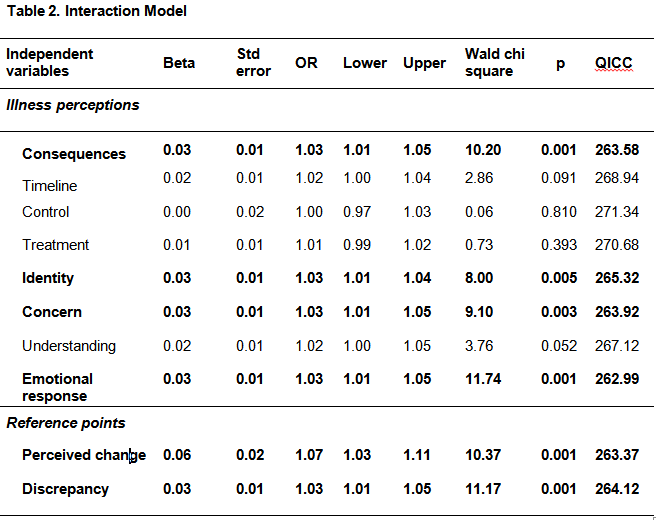Session Information
Session Type: Abstract Submissions (ACR)
Background/Purpose: Treat-to-target (T2T) refers to a set of decision strategies widely advocated for the optimal management of rheumatoid arthritis (RA). Despite considerable evidence that this approach leads to improved outcomes, T2T strategies are not consistently adopted. We hypothesize that patients’ experience of illness complicates the decision to adjust treatment when indicated by recommended thresholds. While disease activity thresholds assess a single reference point (current level of disease activity), patients’ appraisal of their illness depends on multiple reference points. Therefore, in addition to current experience, we also examine past and future reference points, i.e., how current illness compares with recalled past experience and the difference between current and expected future health states.
Methods: We conducted a prospective, repeated measures study in which 142 RA patients (mean age: 59, 86% female) were interviewed at baseline, 2, 4, and 6 months. Disease activity was measured using the RAPID-4. Patients’ current experience was measured using current (8-item Brief Illness Perception Questionnaire), past (recent change in illness severity measured on a 5-point Likert scale) and future (discrepancy between the patient’s current and desirable health states measured on an 11-point numeric rating scale) reference points. We used generalized estimating equations to examine illness perception items, recent change, and discrepancy as main effects and in combination with disease in predicting treatment adjustment. Models are adjusted for age, education, income, duration, and biologic use.
Results: We found that disease activity, three illness perception factors: illness consequences, concern, emotional impact and both past and future reference points predict future treatment adjustments. These illness experience factors are also significant as interactions and the interaction model provided a slightly better fit (QICC index) than the main effects model indicating that the combination of disease activity and the three temporal reference points predicts future treatment adjustments better than disease activity alone.
Conclusion: These findings indicate that recommended T2T thresholds may not adequately reflect thresholds used clinical practice. Physicians likely take patient experience of their illness into account in making treatment recommendations, making it more difficult to consistently adhere to T2T thresholds. Understanding the factors that impact on decision making, may help modify T2T strategies to improve their uptake and ultimately improve patient outcomes.
Disclosure:
L. Fraenkel,
None;
M. Cunningham,
None;
P. Falzer,
None.
« Back to 2012 ACR/ARHP Annual Meeting
ACR Meeting Abstracts - https://acrabstracts.org/abstract/understanding-why-treat-to-target-strategies-are-difficult-to-follow/


